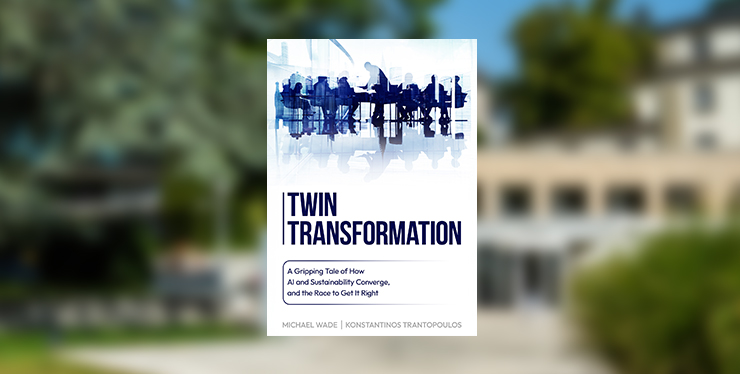
Policy stability and government efficiency
There are certain particularities that underline the competitiveness of countries. We consider these characteristics as attractiveness indicators and asked respondents to our Executive Opinion Survey to select the top five indicators (from a list of 15) for their respective economies. Among these indicators we include cost competitiveness and the availability of skilled workforce. In the Criterion of this month, we focus on the dynamics between one of the attractiveness indicators, specifically policy stability, and a set of relevant variables related to government efficiency.
We observe that for nine out of the top 20 countries in the 2016 overall competitiveness ranking (see table below), survey respondents believe that the stability of government policy is one of the top three attractiveness indicators of their respective countries.
| Table1. Competitivenes and policy stability | ||
| Country | Overall competitiveness ranking 2016 | Policy stability – attractiveness rank |
| Switzerland | 2 | 1 |
| Singapore | 4 | 1 |
| Denmark | 6 | 2 |
| Norway | 9 | 1 |
| Canada | 10 | 3 |
| Luxembourg | 11 | 1 |
| Germany | 12 | 3 |
| Qatar | 13 | 1 |
| New Zealand | 16 | 1 |
We conduct several statistical tests to identify the most relevant variables in determining policy stability. We find that the effectiveness of the legal and regulatory framework, and the effective implementation of government decisions are highly significant in determining the stability of policies. The legal and regulatory framework and the fair administration of justice are similarly fundamental for government efficiency. Interestingly, we find no evidence that policy stability have a strong role in government efficiency; although the interaction among both indicators is positive. In any case, results suggest that the effectiveness of the legal and regulatory framework is the most influential and the common variable in determining both the stability of the policy context and government efficiency.
We thus assess which indicators have a significant impact on the effectiveness of the legal and regulatory framework. We find that the adaptability of government policy, the effective implementation of government decisions, bureaucratic efficiency, the fair administration of justice and the transparency of government play a meaningful role in determining the effectiveness of the legal and regulatory system.
Divisive politics increase the likelihood of political polarization and thus of instability and insecurity in the socio-political environment. The findings herein summarily discussed are a reminder of the importance of a stable and effective political context for the achievement of long-term value creation beyond purely economic gains; that is, for the competitiveness of countries.
Research Information & Knowledge Hub for additional information on IMD publications
IMD produces a yearly Smart City Index offering a balanced focus on economic and technological aspects of smart cities on the one hand, and “humane dimensions” of smart cities (quality of life, environment, and inclusiveness) on the other. In this...

The European Commission is once again focused on boosting Europe’s competitiveness, this time by integrating the bloc’s capital markets. The EU executive published a range of measures on March 19, aimed at unlocking the €11.6 trillion ($12.8 trill...
We extend the mixed gamble perspective to explain how family-controlled firms frame and evaluate the difficult trade-off between potential gains and losses in financial wealth (FW) and socioemotional wealth (SEW) when pursuing portfolio-level stra...
Foreign firm access to the public procurement markets—valued at some $13 trillion worldwide—is not governed by standard trade policies and multilateral trade accords. In trade policy circles, failure to publish procurement tenders in a global lang...
Research Information & Knowledge Hub for additional information on IMD publications
Published by International Institute for Management Development ©2025
Research Information & Knowledge Hub for additional information on IMD publications
in I by IMD
Research Information & Knowledge Hub for additional information on IMD publications
Research Information & Knowledge Hub for additional information on IMD publications
IMD World Competitiveness Center Report, 8 April 2025
Research Information & Knowledge Hub for additional information on IMD publications
Research Information & Knowledge Hub for additional information on IMD publications
in Journal of Management Studies 20 March 2025, ePub before print, https://doi.org/10.1111/joms.13218
Research Information & Knowledge Hub for additional information on IMD publications
Research Information & Knowledge Hub for additional information on IMD publications
Research Information & Knowledge Hub for additional information on IMD publications
in The Quarterly Review of Economics and Finance January 2025, vol. 99, 101898, https://doi.org/10.1016/j.qref.2024.101898
Research Information & Knowledge Hub for additional information on IMD publications







